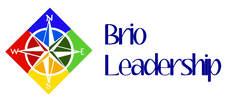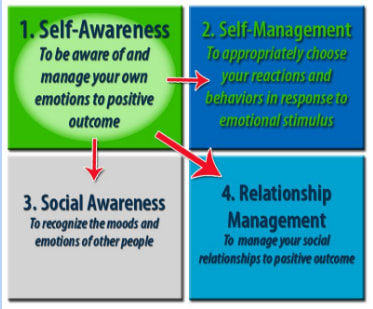|
I dimly remember my high school graduation, but two people and their stories stand out to me: The valedictorian of the class was a nerdy, bookish guy who went to an Ivy League school and majored in science but is lost (to me, anyway) in obscurity. But our class president, who was charming and friendly to everyone, was elected to state senate years later. My point is this: Both my personal experience and scientific research show that emotional/social intelligence, or the ability to positively manage your own emotions and relationships with others, is more important to your professional and personal success than is your intellectual intelligence. Emotional/social intelligence is the biggest predictor of performance in the workplace. That makes sense. People who can identify and regulate their own emotions, can empathize with others and manage social relationships to positive outcome are going to get along better with others, be better liked and be considered a “people person” who is more likely to excel at management. Emotional intelligence can be separated into four quadrants of skills that looks like this: Notice that the top two quadrants pertain to your own emotions, and the bottom two have to do with your awareness of others. The reason that the arrows point away from the first quadrant is that the strength of your Self-Awareness is foundational and affects your abilities in all other areas. Think of it this way: if you can’t recognize and manage your own feelings, how can you recognize them in others? Dr. Daniel Goleman popularized the concepts of emotional intelligence in the mid-1990’s with his seminal book, Emotional Intelligence: Why it can matter more than IQ (1994). For leaders, I prefer his subsequent book, co-authored with Richard Boyatzis and Annie McKee, called Primal Leadership: Realizing the Power of Emotional Intelligence (2002), which documents how a leader’s emotional intelligence sets the tone for the rest of the team. This best seller can be a bit nerdy for some, with its academic citations and neuroscientific arguments. (I’m a little nerdy, so I loved reading this book!) It is definitely not a quick read. For that reason, in our group coaching we will read Emotional Intelligence 2.0 (2003) by Travis Bradberry and Jean Greaves, which provides good background EQ information and also contains strategies to help with the four quadrants of EQ as depicted above. Goleman offers several competencies that a highly emotionally intelligent leader should possess. We will discuss these in our group coaching meetings, so it is important that you know a little about them.
Leadership question: How often can you, as a leader, lose your temper? You may think that losing your temper is never a good thing, or you may think that losing your temper as a viable motivational act. Neither is ideal: As an executive coach, I advise losing your temper once a year for optimal impact. If you do it more often, you become a bully. Losing your temper when it really matters makes a huge impression on those around you when it is an unusual occurrence.
These three strategies, if focused on, will add rocket fuel to your emotional intelligence and increase your leadership effectiveness.
0 Comments
Leave a Reply. |
From the desk of
|
Our services |
Our Company |



 RSS Feed
RSS Feed

